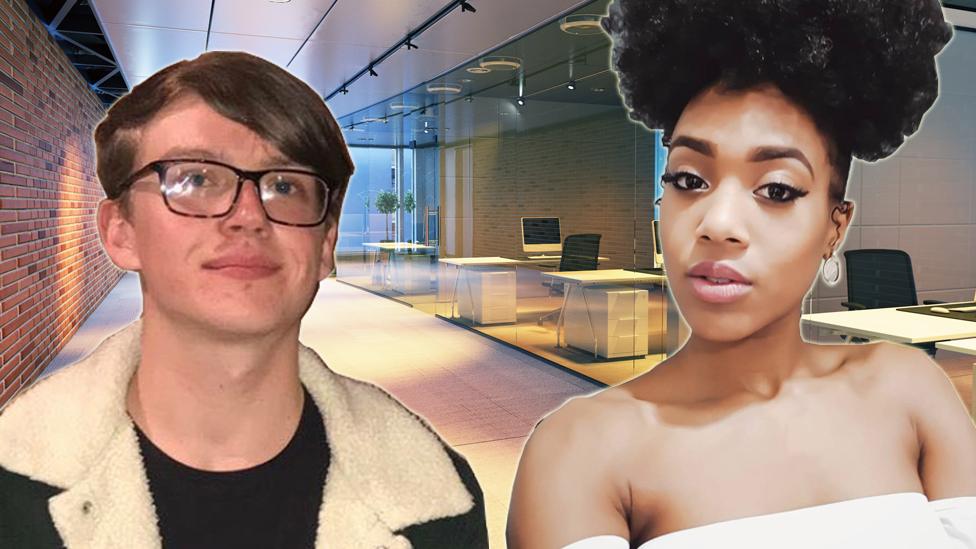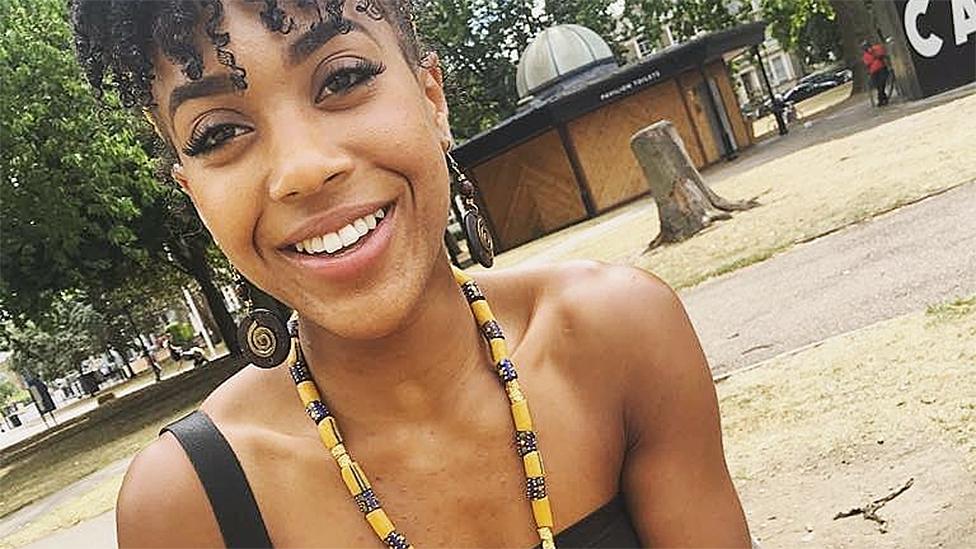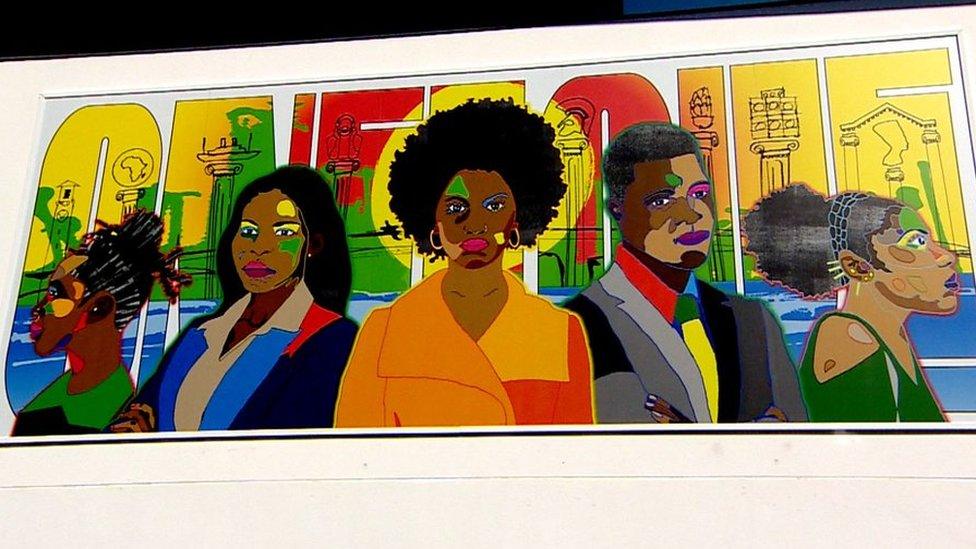Code-switching: How BAME and LGBT people 'blend in'
- Published

You'd never chat to your boss in the same way you speak to friends in the pub, that's just common sense.
But changing how you speak and act around different groups of people happens a lot and can affect you in a big way.
The technical term for it is code-switching, and if you're reading this in work, then there's a good chance your black, Asian and minority ethnic (BAME) and LGBT colleagues are doing it right now.
It's something actress Amandla Stenberg and presenter Ace chatted about on 1Xtra this week.

Amandla says code switching can "be tiring" and "make you feel smaller than you actually are"
"It's probably most apparent in people of colour, because we understand that we can't necessarily show up in historically white spaces and workplaces," The Hate You Give actress said.
"We make sure the way we present ourselves is digestible because we understand that's how to be successful in this world."

What is code-switching?
Code-switching, in this context, is when a person in a minority group tones down some of the most obvious elements that associates them with their community in order to fit into a more mainstream group.
So for a BAME person, that might mean toning down their accent or dialect when they are with white people, or avoiding references to their culture so they feel they stand out less.
And someone from the LGBT community may avoid bringing up their sexuality around heterosexual people to avoid conversations which make them feel uncomfortable.
Code-switching was originally used to describe how someone who speaks more than one language changes from one to another in conversation.

'You want to be easily approachable'

Shaina wishes she could be herself 100% of the time, but "unfortunately life isn't like that"
Code-switching is something personal trainer and stunt artist Shaina West has found herself doing throughout her career - whether she realised it or not.
"It's almost like it's an autonomous sort of thing. It switches on and off," the 24-year-old tells Newsbeat.
"Very rarely do I sit down in the moment and think 'Oh gosh I've done it again'."
Shaina says code-switching is most obvious when she speaks to other people at work, where she forces herself to be more "eloquent or articulate" to be taken seriously.
"You want to be easily relatable and easily approachable, so you find yourself matching the mannerisms of the company in which you're in," she says.
But ultimately, code-switching isn't about the protection of others as much as it is about how people in minority groups protect themselves from stereotyping and categorisation.
"It's just easier to not have to undergo that sort of subtle criticism or judgement," adds Shaina.
"It's easier just to make us feel like we blend in and get on with our day, as opposed to feeling too comfortable or drawing more attention to ourselves."
'It's just easier to not talk about my sexuality'

Tom says he is a "diluted" version of himself at college because of uncertainty of how people might react
And there are people like 21-year-old student Tom Haire, who's LGBT and a student from Lisburn, Northern Ireland, who are also trying to blend in and get on with their day, just like Shaina.
"I'm happy with who I am and I don't care if you don't like me because I'm gay, but you code-switch because you don't want to get a hard time," says Tom.
Tom says it took more than a year to feel comfortable joining conversations about personal issues with his coursemates, but even now describes his personality at college as "a downplayed version of myself".
"It's just easier to not talk about it, which is wrong," he says.
"You don't know how people are going to react, you want to blend in so that nobody notices you."
'Circumstances need to change'
Tom says that "strong opinions" on sexuality in his community mean he continues to code-switch, and that's something Shaina says needs to change before people in minorities can be their authentic selves in all situations.
"Yes we could all just say, 'Let's forget about it, let's stop code-switching and be ourselves'," says Shaina.
"But the circumstances that pressure us to code-switch aren't changing.
"Until they change, our needs to code-switch will forever remain present."
Follow Newsbeat on Instagram, external, Facebook, external and Twitter, external.
Listen to Newsbeat live at 12:45 and 17:45 every weekday on BBC Radio 1 and 1Xtra - if you miss us you can listen back here.
- Published3 October 2018

- Published15 September 2018

- Published30 August 2018

- Published16 July 2018
